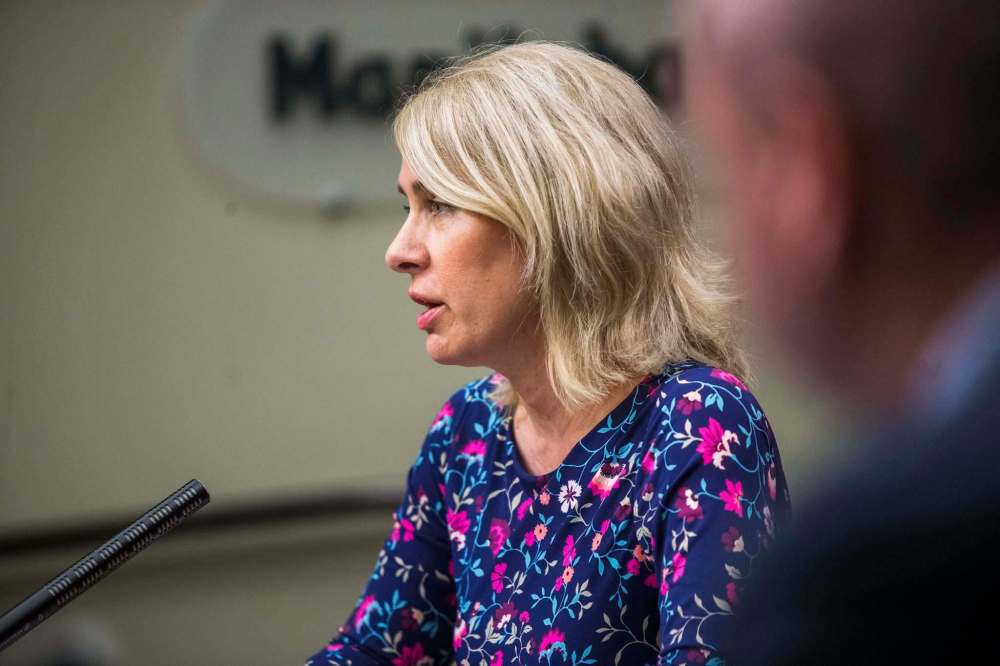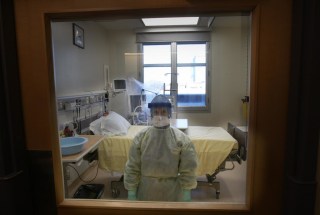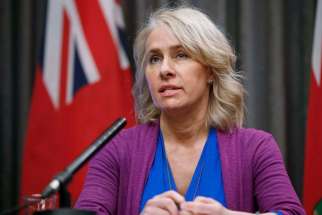Home care limiting services in response to pandemic Family members being asked to help elderly relatives with lower-priority needs
Read this article for free:
or
Already have an account? Log in here »
To continue reading, please subscribe:
Monthly Digital Subscription
$0 for the first 4 weeks*
- Enjoy unlimited reading on winnipegfreepress.com
- Read the E-Edition, our digital replica newspaper
- Access News Break, our award-winning app
- Play interactive puzzles
*No charge for 4 weeks then price increases to the regular rate of $19.00 plus GST every four weeks. Offer available to new and qualified returning subscribers only. Cancel any time.
Monthly Digital Subscription
$4.75/week*
- Enjoy unlimited reading on winnipegfreepress.com
- Read the E-Edition, our digital replica newspaper
- Access News Break, our award-winning app
- Play interactive puzzles
*Billed as $19 plus GST every four weeks. Cancel any time.
To continue reading, please subscribe:
Add Free Press access to your Brandon Sun subscription for only an additional
$1 for the first 4 weeks*
*Your next subscription payment will increase by $1.00 and you will be charged $16.99 plus GST for four weeks. After four weeks, your payment will increase to $23.99 plus GST every four weeks.
Read unlimited articles for free today:
or
Already have an account? Log in here »
Hey there, time traveller!
This article was published 13/04/2020 (2068 days ago), so information in it may no longer be current.
A number of home care clients in Winnipeg will receive fewer calls from health-care aides after the regional health authority suspended visits considered non-essential.
Home care co-ordinators have started reaching out to clients to let them know some services — including bathing, laundry, cleaning, respite and more — will be cancelled indefinitely.
Family members are being asked to fill in the gap, said the son of a nonagenarian who currently receives home care. The man — who asked to remain anonymous to maintain his privacy — said his father learned on Monday his laundry, cleaning, and shower-assist services would be suspended, but meal services would continue.
His dad uses a walker and has fallen in the past, which makes showering complicated, and relies on home care workers to mitigate the risks of falling again. Taking care of his own laundry is also off the table, as the senior can’t safely carry a hamper from his apartment to the laundry facility down the hall.
“If I’m isolating… and haven’t seen my father in the last three weeks except outside at a distance, why would I now enter his condo to provide him services without the protective equipment that home care has?”
“This idea that family can sort of pitch in is ludicrous,” said the son, adding they will likely hire a private care provider instead. “If I’m isolating… and haven’t seen my father in the last three weeks except outside at a distance, why would I now enter his condo to provide him services without the protective equipment that home care has?”
At the end of March, the Winnipeg Regional Health Authority updated its home care visit priority codes in response to the COVID-19 pandemic. Home care co-ordinators subsequently began doing risk assessments for their clients, who are given a priority classification based on their needs.
“These measures are being implemented due to a combination of drivers, including to mitigate the risk of transmission of COVID-19 to both staff and clients by postponing, or reducing the frequency of, in-person, in-home visits where feasible and where it’s safe to do so, and where virtual visits do not present a suitable alternative,” a spokesman for the WRHA said in a written statement Monday.
“Additional drivers include conserving the supply of personal protective equipment for services that cannot be safely postponed, and to ensure staff time can be prioritized to continue offering services to our clients.”

People who fall into priority level three — the lowest needs level — are losing services that would not create a serious or immediate risk to their health status or that of their caregiver, according to a WRHA document. Those in priority level two will lose select services as long as the home care co-ordinator can establish a continuity plan with the client or family. People in priority level one are those who require continued home care visits and do not have a reliable backup plan.
Each client is assessed on a case-by-case basis, the spokesman said. The WRHA was unable to say how many clients would be affected.
Shared Health chief nursing officer Lanette Siragusa said the change in service levels is temporary and consistent with ongoing discussions related to the COVID-19 response at the provincial level.
“Just like we’ve had to pull back on some of the surgeries and the diagnostic testing there may be a need to reduce temporarily some of the home care services that are provided, sometimes due to staffing, because we have redirected a lot of staff to different areas now,” Siragusa said Monday during the daily press briefing.
“We want the proper PPE for them to be able to go out and take care of these clients, but the government will cut the hours instead.” – CUPE 204 president Debbie Boissonneault
CUPE 204 president Debbie Boissonneault said the WRHA has not informed the union — which represents health-care support workers — of any home care workers being redeployed to other positions as part of the province’s COVID-19 response.
Rather, Boissonneault said staff are available and willing to work and maintain home care service levels, given they have the appropriate personal protective equipment (PPE).
“They’ve been extremely anxious about the risk that they pose to their clients and themselves,” Boissonneault said. “We want the proper PPE for them to be able to go out and take care of these clients, but the government will cut the hours instead.”
“People in the community still need home care workers to come in and take care of them.”
danielle.dasilva@freepress.mb.ca

Our newsroom depends on a growing audience of readers to power our journalism. If you are not a paid reader, please consider becoming a subscriber.
Our newsroom depends on its audience of readers to power our journalism. Thank you for your support.









